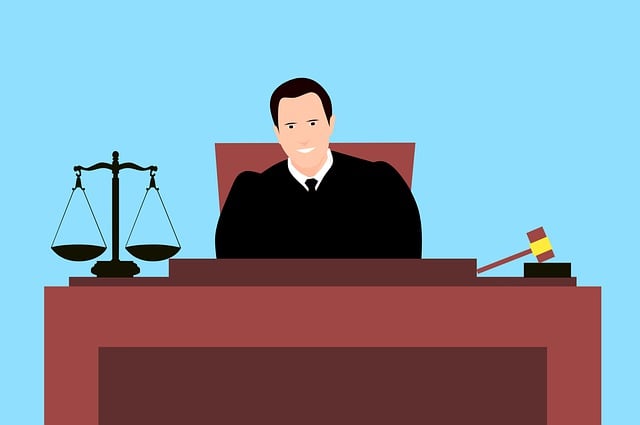Navigating healthcare compliance legal issues demands a deep understanding of Radio Frequency (RF) regulatory agencies' roles in overseeing wireless communications across sectors like healthcare. These agencies enforce regulations on electromagnetic compatibility, radio spectrum usage, and device certification. By comprehending RF frameworks, businesses mitigate penalties and reputational harm. Investigations can be triggered by incidents, legislation changes, or public health concerns, requiring proactive review, swift resolution, and strategic communication with investigators to avoid legal issues. Engaging with communities helps anticipate regulatory shifts, fostering transparency and accountability for continued compliance.
“RF Regulatory Agency investigations are crucial in ensuring the safety and integrity of wireless technologies within healthcare. This article delves into the jurisdiction of these agencies, uncovering common triggers for probes that often arise from non-compliance with RF regulations. We guide navigators through the process, offering insights on maintaining compliance during investigations. Additionally, we highlight strategies for resolving issues and implementing measures to ensure future adherence to navigating healthcare compliance legal matters.”
- Understanding RF Regulatory Agency Jurisdiction
- Common Triggers for Agency Investigations
- Navigating Compliance During an Investigation
- Resolving Issues and Ensuring Future Compliance
Understanding RF Regulatory Agency Jurisdiction

Navigating Healthcare Compliance Legal Issues requires a deep understanding of RF (Radio Frequency) Regulatory Agency jurisdiction. These agencies play a crucial role in overseeing and enforcing rules related to wireless communications, ensuring safety, security, and efficiency across various sectors, including healthcare. Their mandate extends to regulating electromagnetic compatibility, radio spectrum usage, and the certification of electronic devices, among other aspects.
In the context of high-stakes cases involving white collar defense, businesses must be cognizant of how these regulations impact their operations. Non-compliance can lead to significant penalties and reputational damage. Therefore, a comprehensive grasp of the respective business’s legal obligations under RF regulatory frameworks is essential for proactive risk management and strategic decision-making in healthcare compliance.
Common Triggers for Agency Investigations

Navigating healthcare compliance legal issues can be complex, but understanding common triggers for agency investigations can help organizations proactively manage risks. When healthcare facilities or providers fail to adhere to regulatory standards set by RF Regulatory Agencies, it often sparks an inquiry. These investigations typically arise from reported incidents, such as medication errors, patient safety concerns, or allegations of fraudulent billing practices. For instance, a single adverse event involving a medical device can trigger a wide-ranging probe, especially if it raises questions about the manufacturer’s diligence in product testing and quality control.
Beyond these immediate causes, agency investigations may also be prompted by broader trends and systemic issues within the industry. Changes in legislation or evolving public health concerns might push regulatory bodies to conduct sweeping reviews. Moreover, political communities and philanthropies concerned with healthcare equity across the country can influence investigation priorities, pushing for stricter enforcement of regulations aimed at reducing disparities in access to quality care.
Navigating Compliance During an Investigation

When an RF Regulatory Agency initiates an investigation, navigating healthcare compliance becomes paramount for organizations and individuals alike. The process demands a meticulous understanding of the law and its intricacies, as even minor infractions can lead to significant legal issues. A comprehensive grasp of relevant regulations is essential; this includes not just industry-specific guidelines but also broader legal frameworks governing radio frequency (RF) technology.
Strategic navigation during such investigations involves proactive measures to ensure compliance while anticipating potential pitfalls. Organizations should promptly review and assess their operations, identifying any areas that might be at odds with the regulatory landscape. Achieving extraordinary results in these scenarios often lies in effective communication with investigators, prompt remediation of identified violations, and, where necessary, enlisting the aid of specialized general criminal defense lawyers who can guide through complex legal waters, helping to avoid indictment while ensuring adherence to evolving healthcare compliance standards.
Resolving Issues and Ensuring Future Compliance

When RF Regulatory Agency Investigations uncover non-compliance issues within healthcare organizations, resolving them promptly is paramount to maintain operations and protect patient safety. Navigating Healthcare Compliance Legal Issues requires a strategic approach that involves addressing the root causes of infractions while implementing robust systems to ensure future adherence to regulations. Organizations must conduct thorough internal audits, develop comprehensive training programs for staff, and establish clear protocols for documenting and reporting compliance activities.
Achieving extraordinary results in compliance management involves fostering a culture of transparency and accountability across the respective business. Engaging with philanthropic and political communities can also play a crucial role by providing insights, resources, and support necessary to stay ahead of evolving regulatory landscapes. Ultimately, proactive measures taken during this process not only resolve current issues but also safeguard organizations from potential future penalties and legal complications.
RF regulatory agency investigations can significantly impact healthcare organizations, highlighting the importance of understanding jurisdiction, common triggers, compliance navigation, and issue resolution. By staying informed on these key aspects, including managing legal issues related to navigating healthcare compliance, entities can proactively minimize risks and ensure sustained adherence to RF regulations. This strategic approach fosters a culture of accountability, enhancing overall operational resilience in response to evolving industry standards.






